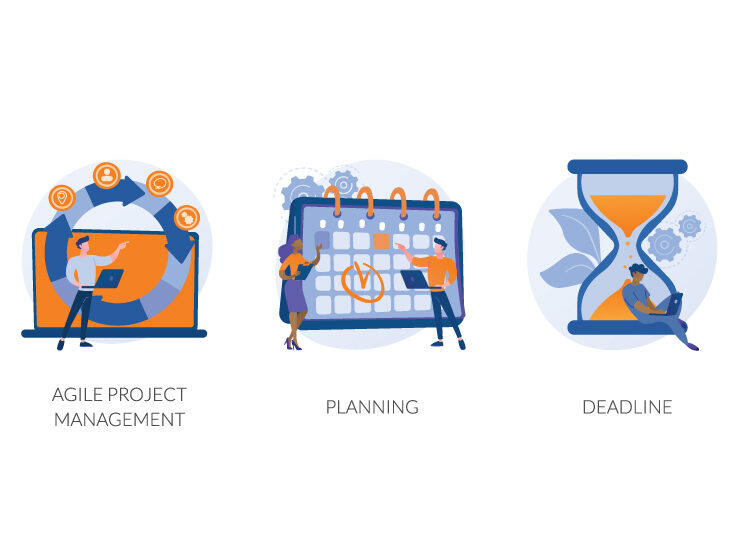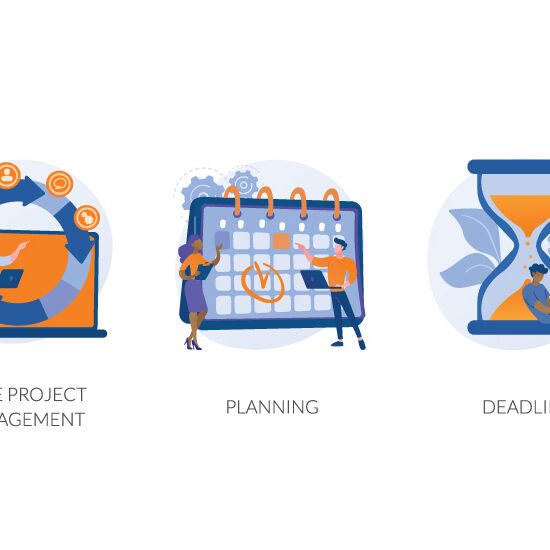What is a Project Deliverable?
Any product or service produced by a project may qualify as a project deliverable, provided it meets a few criteria. First, stakeholders in the project must agree with the deliverable. These may be either internal or external stakeholders. The deliverable must be within the scope of the project and can be completed by one or more tasks. Finally, it should align with overall project goals.
Project deliverables are categorized as either internal or external, depending on whether the intended stakeholders are inside or outside the company. An example of an internal deliverable is a design that requires sign-off by someone in marketing before work can start on implementation. Internal deliverables often referred to as project milestones, aren’t shared outside the company. External deliverables, in contrast, are shared with external stakeholders like clients and customers.
Defining Project Deliverables
Deliverables are dependent on objectives, so a project’s key objectives should be known before objectives are defined. Then you work backward and define the tasks that need to be done to reach each project objective. From there, you package the tasks into a series of deliverables and define the requirements for each deliverable. The stakeholders for the deliverable should agree on the requirements before work commences. Once the requirements are finalized, a deliverable is not considered complete until all requirements are satisfied.
According to freelance hiring website Upwork, “It’s vital to have clear, agreed-on deliverables before beginning a project. Otherwise, a project might not meet all the client’s or stakeholder’s needs, and your team could end up wasting a lot of time and money.”
Either internal or external stakeholders may decide they don’t want to sign off on a deliverable, though external stakeholders tend to have more pull. “Scope creeps” is the term used when a stakeholder wants to add more requirements to a deliverable while it’s being developed or after it’s delivered. This may affect the overall project schedule, so project managers need to weigh pros and cons carefully before agreeing to new requirements.
The Role of SMART Goals
The SMART framework provides a method for assessing the goals of a project at every stage of its development. Goals that are SMART– Specific, Measurable, Attainable, Relevant, and Time targeted.
Assessing each project management deliverable objective according to these criteria provides the answer to these core project management questions:
- What are we trying to accomplish?
- Why do we need to accomplish it?
- Who needs to be involved?
- What other resources are needed?
As you create the list of project objectives, make sure that they are specific enough to allow the definition of large and small deliverables that support the objective. In general, two types of key deliverables are created from objectives: project and process. Project deliverables are tangible items that meet specific needs, while process deliverables support or quantify the effort needed to implement project deliverables. For example, completing the project within a particular timeframe or budget would be a process deliverable.
Why are Project Deliverables so Important?
Defining deliverables based on project objectives during the project planning phase helps establish the expectations of the stakeholders. Each deliverable should clearly communicate to all involved the scope, timeline, and budget for a specific chunk of work. It’s up to the project manager to make sure that all project deliverables taken together meet the project objectives and satisfy all stakeholders. This is where the SMART framework can be helpful. When done correctly, each successful deliverable is completed on time and, according to quality standards, moves the project one step closer to successful completion.
According to research conducted by PMI, poor requirements management is cited 47% of the time as the main reason a project fails to meet its goals. This is why defining the requirements for each deliverable is so critical. When deliverables are defined upfront, it’s easier to budget the time, resources, and money needed to complete them. Overruns can’t always be avoided; having clearly defined deliverables helps cut down on surprises as the project progresses.
Managing and Tracking Deliverables
Whether the project involves building a skyscraper or developing a website, managing and tracking project deliverables can be a complex process. Producing a schedule for deliverables must consider available resources, external dependencies, and mundane details like team members’ scheduled vacation days. This complexity is the reason many project managers rely on workforce management software that provides online tools for assigning and scheduling tasks. Many project management deliverables systems also support communication and collaboration among team members and stakeholders. The software lets everyone see who a deliverable is assigned to and how it’s progressing. It lets project managers get a clear overview of the project and understand which deliverables are on track and which need more time or resources.




